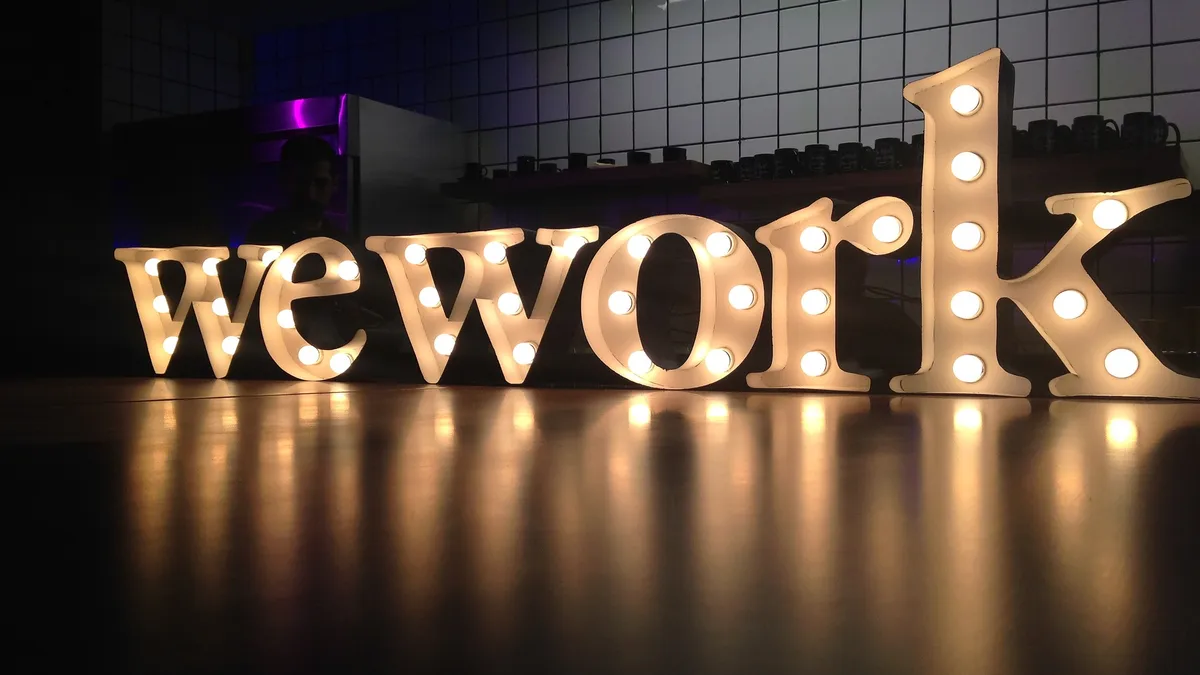Dive Brief:
- A former executive at WeWork Companies sued the company and its head of human resources in state court for sexual harassment, gender discrimination, equal pay violations, retaliation and aiding and abetting discrimination under New York City and state law (Bridges v. WeWork Companies, Inc. and Jennifer Berrent, No. 156140/2019 (Supreme Court of the State of New York County of New York June 20, 2019)).
- Lisa Bridges was hired in August 2018 as a senior vice president for total rewards where she was responsible for compensation, benefits and stock awards. She said she discovered the company "had a significant equal pay problem" after having WeWork's people analytics division conduct a pay analysis. Specifically, $1,000,000 equity grants were given almost exclusively to men, she said. When she presented the findings, she was told more men received equity grants because "men take risks and women don't," according to the complaint. Bridges alleged the company retaliated against her, too: "In response to Plaintiff complaining about equal pay violations, discriminatory practices, and questionable equity practices, WeWork threw Plaintiff out of the office, its General Counsel threatened her and then it tried to get her to agree to leave the Company."
- WeWork also faces an age discrimination lawsuit from a former vice president who claimed that several months after he was hired, the company hired someone 20 years younger with the same title without explanation, Bloomberg reported. The executive was later told that his position was being eliminated.
Dive Insight:
Other high-profile companies face similar accusations. Microsoft's executive leadership team confirmed earlier this year that it is responding to allegations of sexual harassment and discrimination at the company. Last year, a report revealed that women working at Microsoft filed more than 200 internal complaints alleging gender discrimination or sexual harassment between 2010 and 2016.
Sometimes, worker complaints result in change. Google agreed to eliminate the use of mandatory arbitration agreements for current and future employees. The move was prompted by criticism, including protests and walkouts, from employees that the use of mandatory arbitration and its private nature, particularly in cases involving harassment, assault or discrimination, would prevent people from coming forward.
It's worth noting that experts have urged companies to carry out pay audits to identify and correct gender- and race-based pay discrimination — exactly what Bridges claimed she attempted to do.













